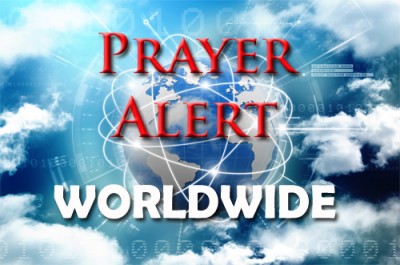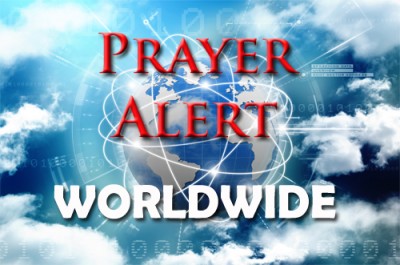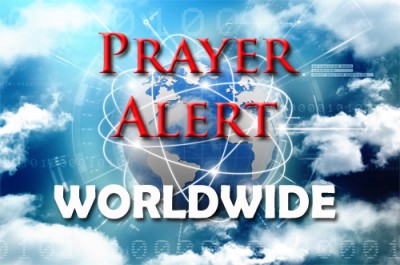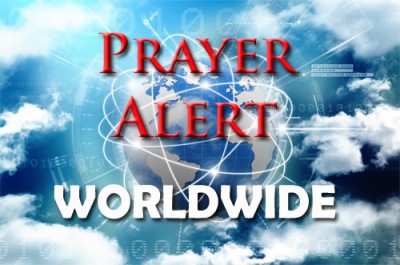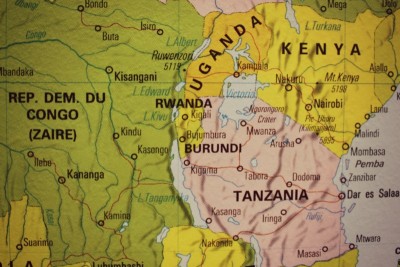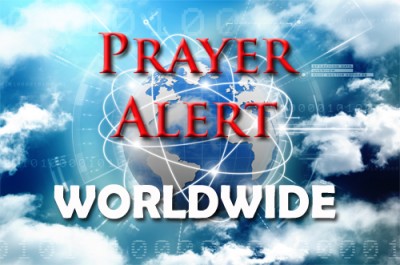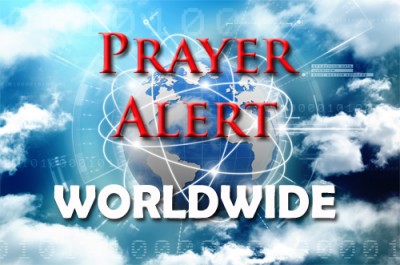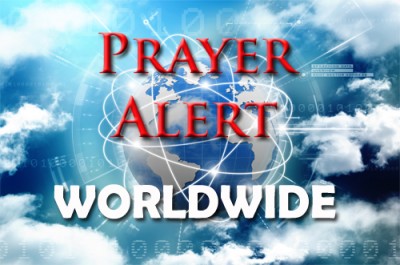Syria: besieged towns
15 Jan 2016This week two convoys of forty lorries reached the outskirts of the besieged rebel-held Syrian town of Madaya, carrying flour, medical supplies and hygiene products. On Monday the UN found ‘horrifying conditions’ while delivering the first batch of aid to the 40,000 people trapped by government forces. A smaller convoy is en route to two other towns under siege by rebels in Syria’s northwest, as part of a deal between the warring parties. The priority for Thursday's aid delivery to Madaya was wheat flour and medical assistance. The UN's humanitarian co-ordinator has called for all sieges in Syria to be lifted. Pray for this relief not to be a ‘one-off’; pray for the sieges to be lifted; pray for people across Syria struggling to survive; and pray for the safe evacuation of hundreds who are in need of urgent medical treatment.
There is a mixed bag of expectations and anxiety over what this new year holds for Nigeria. Yesterday’s excesses have come home to roost. Time and time again the issue of over- dependence on oil has been a hot topic, and many have said that the nation should look to other sectors such as agriculture and mineral resources also. The shell-shock of crashing oil prices has alarmed the government. 2016 will be an extremely tough year, though many hope it will bring change and an acceleration of meaningful development of other sectors of the economy. Currently over 80% of all government revenue derives from the sale of crude oil.
At the end of 2015 the global anti-corruption watchdog, Transparency International, reported: ‘The police force is the most corrupt institution in Kenya.’ Investigations revealed a hierarchy in the way proceeds of corruption are shared among police officers. Kenya is supposed to be vetting all its police officers as part of a reform package the government agreed to undertake. Meanwhile the International Justice Mission, a Christian organisation, request prayer for breakthrough as they advocate that a corrupt and abusive police should be held accountable under the law. ‘Our team in Nairobi has been working tirelessly to encourage justice system officials to understand the importance of holding corrupt police officers accountable for their actions. We have helped free many innocent prisoners and ensured bogus charges were dropped, but none of the police who abused their power to imprison the innocent have ever been convicted. Please pray for a breakthrough as we work alongside Kenyan authorities to encourage them to hold all police officials, regardless of their status, accountable for their actions.‘
Israel has curtailed gas supplies to the occupied Gaza Strip, causing a major disruption to most families and exacerbating the harsh impact of the cold weather. The amount of gas entering Gaza has decreased by 50% since early December, 15% of what is needed. Euro-Mediterranean Human Rights Monitor, based in Gaza, said 20% of Gaza households do not have gas. A shortage of electricity has worsened the crisis. Gaza's agricultural sector, which depends on gas to run greenhouses has been further hurt by the gas crisis. The Israeli authorities are being accused of causing the gas shortages to intensify pressure on Gaza and push people against Hamas, the group who govern the strip. However, the Israeli ministry of energy has not responded to Al Jazeera's requests for comment.
Urgent prayer for Burundi
13 Jan 2016A reliable source has asked us to pray for the situation in Burundi.
Burundi, a small country in the heart of Africa, the second poorest country in the world with a population of just over 10.5 million people is facing a very dangerous time. In the last civil war in the 1990s 300,000 people died. In the region over the last 22 years between 800,000 and 1 million people died in neighbouring Rwanda and a further 5.4 million in the Congo (formerly Zaire). In Burundi bodies are now being found on the streets of the capital Bujumbura and other areas nearly every day. Political violence is increasing and could turn inter-ethnic. Language being used is chillingly similar to the language in Rwanda prior to the 1994 Genocide of the Tutsis. There are already over 300,000 refugees in countries surrounding Burundi, and if the violence doesn't stop there is the potential to destabilise the region. Please pray for an end to the violence, for peace and reconciliation and a just solution to the internal difficulties.
A Prayer for Burundi
For the beautiful but poor country of Burundi, we pray dear Lord.
For the population living in fear and dread, afraid of the unknown and the uncertain, we ask for peace.
For those fleeing whether in Burundi or abroad, we pray for safety, freedom from disease and famine and the security that they may return home.
For those seeking the way of violence that they would stop and seek resolution through non-violence.
For the surrounding countries that they may remain at peace, act justly and broker reconciliation.
Enable an end to violence so that Burundi may become a beacon of hope rather than a place of fear and death.
We ask these things in the name of Him who carried all our human failings on the cross, Jesus Christ our Lord.
Amen
Australia: palliative care
08 Jan 2016The Victorian government has conducted a public consultation to improve palliative care service and work towards the development of an end-of-life care framework. The Australian Christian Lobby was able to contribute to the discussion by making a submission that highlighted the importance of ensuring that good health practice is carried out in palliative care. People requiring medical treatment and care who are approaching the end of their life are often some of the most vulnerable members of society, and need to be treated in a way that is consistent with the dignity of their humanity. This means that public health policy must always reject any health care solutions that intentionally seek to end a patient’s life, even when desired by the patient.
South Africa: human trafficking
08 Jan 2016Nomasonto Khoza, the mother of a one-year-old toddler, and her two accomplices appeared at the Nelspruit magistrates’ court on Thursday, charged with human trafficking. The 25-year-old mother sold the child for R5,000 in Springs to 45-year-old Thobile Ndhlovu. The accused remain in custody until bail is paid. The case has been postponed to 17 February. Human trafficking affects countless victims around the world. The methodologies used to arrive at estimates about its nature and extent have been criticised as flawed or lacking in scientific rigour. In South Africa, claims by anti-trafficking campaigners and NGOs report that 30,000 children are trafficked into the country annually as part of the sex trade. The same figure has been used by the Department of Home Affairs to justify visa regulations aimed at combating child trafficking. The number of cases being reported suggests it is on the increase in South Africa. See also: http://theconversation.com/human-trafficking-in-south-africa-an-elusive-statistical-nightmare-43949
Boko Haram slaughtered more than eighty people in a series of attacks the week after President Buhari suggested his army had ‘technically won the war.’ The Global Terror Report 2015 places Nigeria third on their list of 124 countries, and says that Boko Haram are ‘deadlier than IS, having killed more people’. Buhari had previously vowed to drive out the terror group from the country by December. He now suggests they have ‘technically’ been defeated as they revert to using improvised explosive devices and indoctrinating children. Meanwhile a refugee camp with 2,500 temporary homes for refugees fleeing Boko Haram now hosts close to one million. 2.5 million people have been internally displaced due to Boko Haram's various attacks. Reports suggest that women have been forced to carry out suicide bombings for the terrorists, who have become notorious for kidnapping thousands of women and girls from towns and villages.
